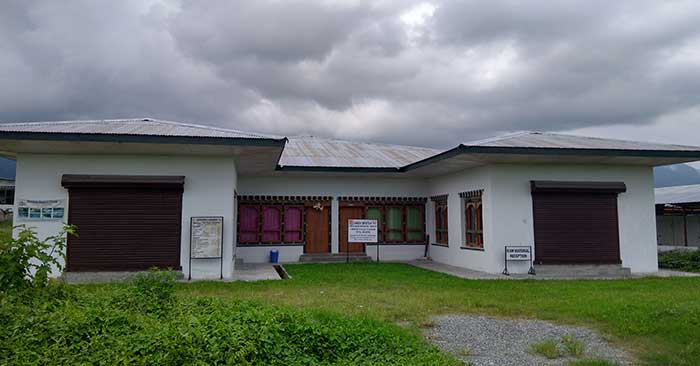Nima | Gelephu
Sherchok Women, a group that was supposed to become a model project to engage and empower home-based workers in the country, is not operational now.
Sherchok Women was an informal food production group formed in 2013 by home-based workers in Gelephu. The group produced natural food products, candies, and spices.
The group had been operating a food-processing unit for over five years with the support from SABAH Bhutan since 2015.
The facilitation centre worth more than Nu 3 million, over Nu 500,000 worth machinery, raw materials, and food products costing more than Nu 400, 000 are lying idle.
The group used locally available raw materials to make organic pickles without using preservatives.
The member of the group and SABAH Bhutan staff, Nidup Zangmo, said the group started losing interest after it was asked to process loans for the community facilitation centre at the industrial service centre.
“The budget support from the European Union couldn’t cover the construction cost. And it was also not convenient for the women to process the loan,” she said. “They stopped coming to work then.”
The group, she added, produced the highest amount of pickles and related products in 2018. But, the products could not be sold because of a poor market.
“So we did not have the confidence to process the loan,” said Nidup Zangmo.
SABAH Bhutan’s chairperson, Phuntshok Chhoden, said the organisation’s aim was to empower the home-based workers to run the enterprise as their own while keeping doors open to other home-based workers in the dzongkhag.
Before the group registered with SABAH Bhutan, the Sherchok Women were paid wages like daily workers and it continued after the group was registered as cooperative in 2018.
“I found it to be a disempowering practice because HBWs get subordinated as beneficiaries instead of becoming owners of SABAH-Bhutan and Sherchok for example,” Phuntshok Chhoden said.
She added that the Sherchok Women group refused to apply for a low-interest loan when the facilitation centre’s construction cost exceeded the budget.
“They did not want to take the risk,” she said
Phuntshok Chhoden said the office invested heavily from the start to help the group grow.
She said the group was on the verge of closing in 2015. “The group was facing managerial, financial, and professional expertise. They approached SABAH Bhutan to intervene.”
The number of women joining the group increased annually and, with it, revenue. But, the lack of trust among the members and staff led to closure of the group after 2019.
The group recorded the highest sales record in 2017 and generated over Nu 1.4 million.
Sherchok Women was first formed by a former civil servant, Chimi Dema, with a vision to empower and help women in the locality to gain economic independence.
The production dropped drastically after the founder of the group resigned from the group last year. The number of women in the group decreased almost by half. The group couldn’t produce and sell their products too.
“The group should not have failed. But, it’s not properly managed,” she said.
Chimi Dema said that she was not paid for the work she did in the group until 2018. “I invested over Nu 500,000 from my own to run the unit but the income generated went to the group,” she said.
She added that she had to quit her job because of the project.
Today, Chimi Dema runs her own organic products enterprise.


